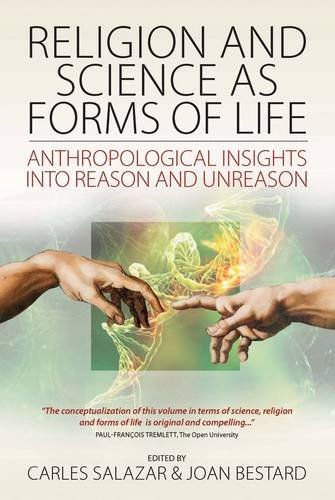

Most ebook files are in PDF format, so you can easily read them using various software such as Foxit Reader or directly on the Google Chrome browser.
Some ebook files are released by publishers in other formats such as .awz, .mobi, .epub, .fb2, etc. You may need to install specific software to read these formats on mobile/PC, such as Calibre.
Please read the tutorial at this link: https://ebookbell.com/faq
We offer FREE conversion to the popular formats you request; however, this may take some time. Therefore, right after payment, please email us, and we will try to provide the service as quickly as possible.
For some exceptional file formats or broken links (if any), please refrain from opening any disputes. Instead, email us first, and we will try to assist within a maximum of 6 hours.
EbookBell Team

5.0
70 reviews"Drawing on an eclectic range of ethnographic, empirical and theoretical sources, this book is a fascinating and timely contribution to contemporary scholarly debates about that most troubled of interfaces, between religion and science." · Alexander Smith, The University of Warwick
"The conceptualization of the volume in terms of science, religion and forms of life (although public life might also work) is original and compelling as a means of exploring the complex terrains and scales at which religion and science meet, are received and transform one another." · Paul-François Tremlett, The Open University
The relationships between science and religion are about to enter a new phase in our contemporary world, as scientific knowledge has become increasingly relevant in ordinary life, beyond the institutional public spaces where it traditionally developed. The purpose of this volume is to analyze the relationships, possible articulations and contradictions between religion and science as forms of life: ways of engaging human experience that originate in particular social and cultural formations. Contributions use this theoretical and ethnographic research to explore different scientific and religious cultures in the contemporary world.
Carles Salazar is Professor of Social and Cultural Anthropology at the University of Lleida. He received his PhD from the University of Cambridge and has carried out ethnographic fieldwork on cooperation, religion and kinship. His publications include Anthropology and Sexual Morality. A Theoretical Investigation (Berghahn, 2006) and European Kinship in the Age of Biotechnology, co-edited with Jeanette Edwards (Berghahn, 2009).
Joan Bestard is Professor of Social Anthropology at the University of Barcelona, where he is also director of the research center on Kinship and Family. He has done research on kinship and religion and is currently conducting research on religion in Southeast Poland. His recent publication is Familias (Madrid, 2012)